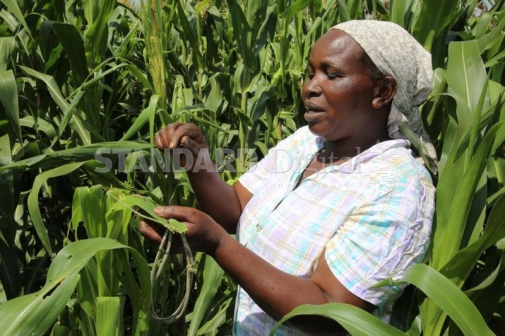×
The Standard e-Paper
Fearless, Trusted News

When he received a call in mid-March, he knew the weight of what awaited him. After all, he had worked as a field agricultural officer for over 30 years.
The call was from a maize farmer in Endebbes, Trans Nzoia County. The farmer was worried about green caterpillars that had invaded his field.